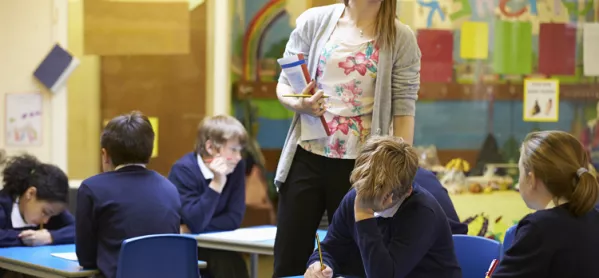Primary children from a Chinese or Indian background most likely to have private tuition

Primary school children from Chinese, black or Indian backgrounds are more than twice as likely to have private tution as white children, research has revealed.
The study by Newcastle University and NatCen Social Research, an independent research institute, shows that at the age of seven, private tuition in academic subjects is most common among children from an Indian background - with 20 per cent being tutored, compared with 3 per cent of white pupils.
By the age of 11, almost half (48 per cent) of children whose ethnicity was described as “other”, which includes Chinese pupils, have had private tuition. This compares with 47 per cent of black pupils, 42 per cent of Indian pupils and 20 per cent of white pupils.
“Clearly some ethnic groups are feeling a greater need to supplement the work of schools than others,” said Liz Todd, professor of education inclusion at Newcastle University, who carried out the study, which is due to be presented at the British Education Research Association annual conference today.
“Does this mean some parents are lacking confidence in what goes on during school hours? Or are they just more likely to see tuition as a worthwhile route to help their children succeed? It is not clear from the numbers themselves, but the figures for private tuition are certainly high among some groups.
“We also need to look at the gains in pupil attainment across groups and ask to what extent these are due to changes in teaching, school reforms or the provision of tuition at home.”
The researchers analysed data from the Millennium Cohort Study, which follows the lives of 19,000 children born in 2000/01. They noted that Chinese and Indian pupils do better in Sats tests at the end of primary school.
Russell Hobby, general secretary of the National Association of Head Teachers, said: “I understand the motive [of paying for extra tuition] but this is treating the symptoms rather than the causes. We should spend our resources on ensuring every child has a good school-based education rather than playing catch-up after hours.”
In 2014, 88 per cent of Chinese pupils and 86 per cent of Indian pupils achieved the expected level in reading, writing and mathematics, compared with 79 per cent of white British pupils and 73 per cent of black Caribbean pupils.
The researchers also found that the time spent on homework varied significantly by ethnicity, with a quarter of Chinese pupils and 24 per cent of Indian children spending at least five hours a week on homework.
Meanwhile, 22 per cent of all five year olds spent an hour or more playing computer games a day, which rose to 47 per cent of 11 year olds.
Out-of-school music tuition was also most likely to be taken up by Chinese pupils: 31 per cent learnt an instrument, compared with 22 per cent of white pupils and 19 per cent of Indian pupils.
The research comes after a Sutton Trust survey found that private tuition is on the rise. It noted that nearly half of pupils living in London have received private tuition, compared with 34 per cent 10 years ago, while Asian pupils are more likely to receive private tutoring.
- In a separate paper, Karamat Iqbal of the University of Warwick found that Pakistani boys attending religious classes after school had less time to do their homework. His study, conducted in three Birmingham state secondary schools, found that all 24 Pakistani boys he interviewed took part or had recently taken part in after-school religious classes. He recommended that such could feature within school and proposed providing homework clubs in mosques.
Keep reading for just £1 per month
You've reached your limit of free articles this month. Subscribe for £1 per month for three months and get:
- Unlimited access to all Tes magazine content
- Exclusive subscriber-only stories
- Award-winning email newsletters



